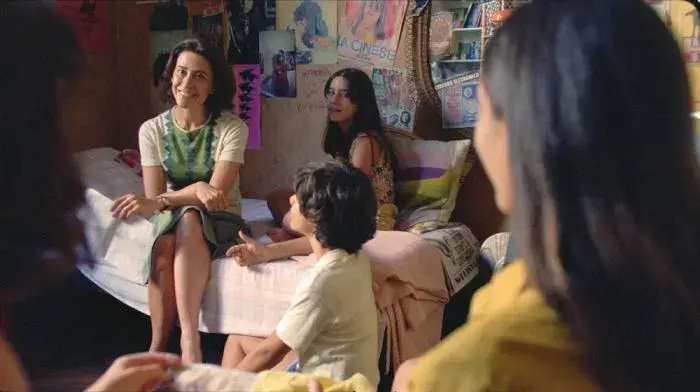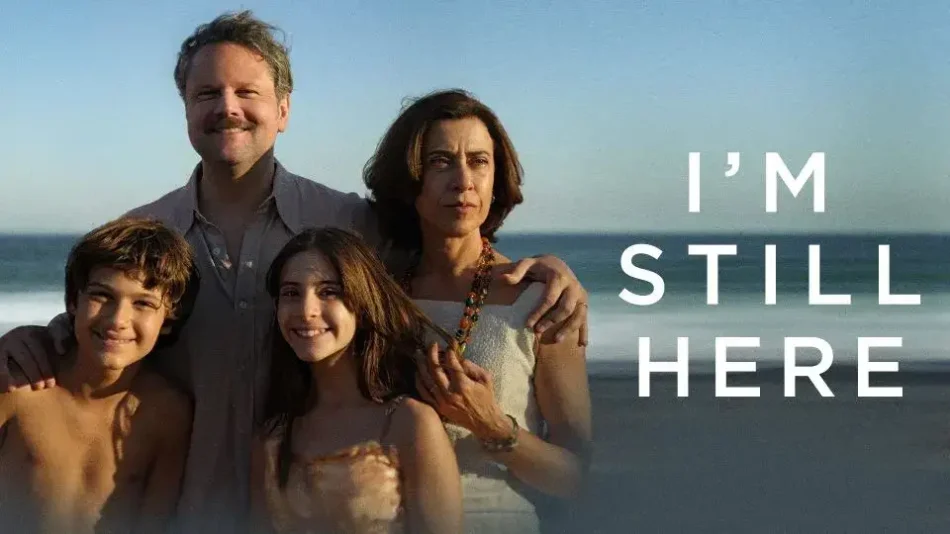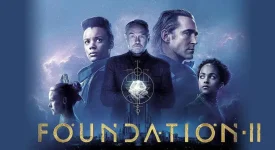(may contain spoilers)
Douban rating: 7.8
Director: Walter Salles
Starring: Fernanda Torres, Selton Mello, Fernanda Montenegro
Douban Comments: “In Venice I just saw my favorite movie so far. It’s rare to see such a heavy and public event like political persecution told from the perspective of a small family unit. The film’s use of media – film cameras, photographs, and 50 years of visual records preserving memories – is deeply moving.
The first half-hour builds tension with subtle details, slowly revealing the hidden fear beneath everyday life, setting the stage for an emotional release later. The film never relies on excessive drama. Instead, it layers emotions through small moments, facial expressions, and actions. The mother’s resilience, gentle strength, and care for her children’s emotions show another side of the struggles, conflicts, and trauma these families face.
Despite the darkness, the film is not about trauma itself but about how a family heals. Love, companionship, and growing trust fill every moment.”

“I cried so hard in the theater. I absolutely love this story.
The first half feels like a Brazilian version of In the Name of the People – a story of the present, grounded in reality. The second half is about how an individual life transcends political barriers – a journey to the other shore. In the end, what people seek is proof that you existed, that you witnessed the truth.
The protagonist is a wife, a mother, and a victim of political forces. This film is Brazil’s The Great Flowing River – so sorrowful, so joyous, so unique.
Here, history is not a discarded or rewritten toy; it is a ghost that returns again and again. And memory, too, keeps coming back to life on the screen.”
“’When did you bury your father in your heart?’
This casual question and answer made me cry for thirty minutes in the movie theater. Even now, as I write this short review, I still can’t hold back my tears when I think of the day he left home in a suit, his wife standing at the door to see him off.
The wheel of history rolled quietly over them, and one family suffered for half a century.
The old hometown is now overgrown with grass and trees, and you’ve always been alone.”
“It’s a very long story, centered on one thing: the people who lived through it will not forget. The timeline stretches from 1970 to 25 years later, and then again to 2016. By then, the woman at the heart of the story has developed dementia, yet she still hasn’t forgotten.
When the state refuses to take responsibility, all ordinary people can do, besides speaking out and fighting for their rights, is to remember.
As an adult, the younger daughter asks her brother, ‘When did you realize our father wasn’t coming back?’
He replies, ‘A year later, when mom donated his clothes.’
She says, ‘For me, it was when the family moved to a new home.’
He’s surprised: ‘That early?’
As a viewer, you realize from the first scene, when the director shows the family so full of warmth and happiness, that once the father is taken away by the police, he’s never coming back.
This kind of story doesn’t focus on conflict. Instead, it emphasizes remembrance. And as for those repeated family portraits, they leave a lasting impact.”








